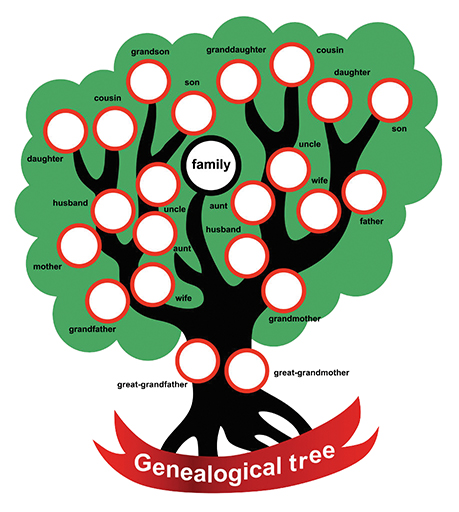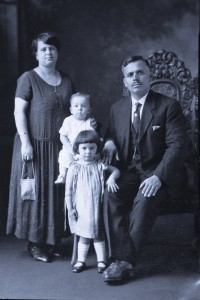Find Family Tree Branches On-line
Posted on May 2, 2016 by bob in Discover Your Past
Online genealogy services are more than just a means to build a digital family tree that you can share with your relatives. These services can also help you find new family members, connect with existing ones and discover things you may have not previously known about your family history. Because these services also search through databases that contain millions and sometimes billions of records, it’s important to understand how the search process works. To help you get the most out of your genealogy project, we’ve detailed how you can locate historical records using your family tree or the record archive.
Searching with your family tree
Generally, when you sign up with a genealogy service online, it will prompt you to start your family tree before anything  else. Although this may seem like a time-wasting activity, creating a family tree will actually help you connect your family members to public records and other documents. You start by filling in information about yourself first, such as your first, middle and last name as well as your gender, birth date and place of birth. Then you’ll be asked to expand your family tree by adding family members and noting whether these relatives are living or deceased — the genealogy service will then start to search through its records database using this information.
else. Although this may seem like a time-wasting activity, creating a family tree will actually help you connect your family members to public records and other documents. You start by filling in information about yourself first, such as your first, middle and last name as well as your gender, birth date and place of birth. Then you’ll be asked to expand your family tree by adding family members and noting whether these relatives are living or deceased — the genealogy service will then start to search through its records database using this information.
For example, if it finds anything matching your mother’s name and date of birth, it may pull up birth records or marriage certificates. Similarly, if you add a deceased relative to your family tree, such as your great grandfather, it will pull up these records as well as death records and U.S. Census Records. When the genealogy service finds a record that is a potential match for a relative in your family tree, you have the option to review it before deciding whether you want to save it to the specific individual’s profile in your tree. While it may take time to fill out your family tree with names, birth dates and other information, adding this data, even if it’s only an estimate, will help improve your family history research.
Searching with the record archive
If your family tree isn’t yielding any record results or you aren’t quite ready to create one, there’s another way to search for your family’s historical records. While our top-rated service, Ancestry, allows you to search for a name in its record archive, FamilySearch is the only genealogy service we review that allows you to filter through its database by Records, Genealogies, Catalog and other options.
Records — uses a relative’s location and life event you input (e.g. a marriage) to find specific records.
Genealogies — will search for your family members that have similar names, dates and locations that potentially match with other members’ family trees.
Catalog — searches multiple resources, including partner libraries, to bring you results from things that fall outside of the regular birth, death and marriage records (e.g. Blackfoot Idaho Family History Center, military related libraries and newspaper articles).

In addition, both Ancestry and FamilySearch also let you order physical copies of birth, death, marriage and divorce certificates if you’d like to have a hard copy for your own records. It should be noted that FamilySearch only allows you to order some of its records and you can print the digitized ones online. As with your family tree entries, when searching through the record database, it’s important to enter as much information as you can. Even if you don’t know the exact city your grandmother was born in or her exact birth date, for example, entering the state and an estimated year will give you a much greater chance of finding possible record matches.
If you’ve been looking to get started with a family history project using a genealogy service, but are hesitant to sign up for one, many of these services offer a free trial to let you test it out before making a financial commitment — and some of these services are completely free to the public.
Courtesy: NextAdvisor. Visit www.nextadvisor.com to read online genealogy service reviews and see which one works best for you.









